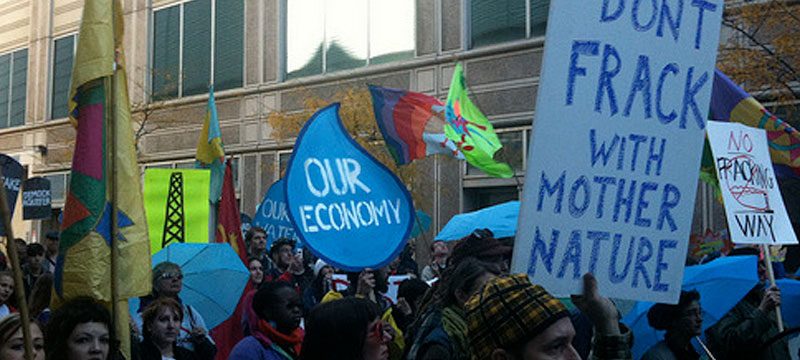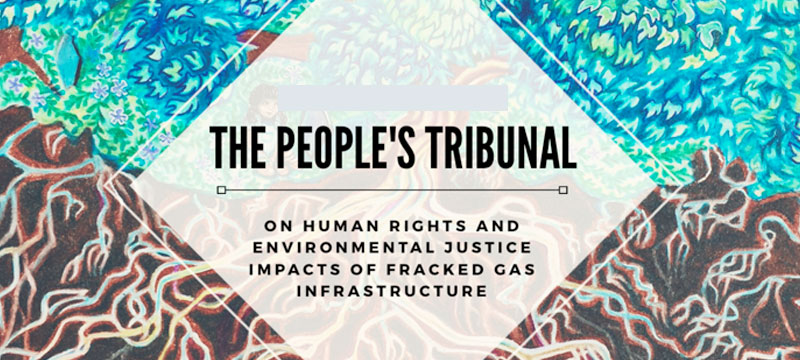As Regulations Roll Back, Environmentalists Take Fossil Fuels To Court

In a time when environmental regulations and protection statues are being removed and rescinded in the United States and elsewhere, we are threatened for a serious return to overt, uncontrolled corporate consumption of the world's natural resources - a phenomenon that was rejected in the 1970's with the passage of legal protections such as the Clean Air Act and Clean Water Act that protected citizens from the consequential, health-harming effects of pollution associated with fossil fuels, industrial manufacturing and agriculture, and the general poisoning of air, streams, rivers, coasts and ocean to a degree no longer acceptable by the public.
From the very moment of creation of these legal frameworks, corporate interests began an insidious, incremental attack through exception, exemption, tax credits, and other means to prolong the profitable enterprise without such controls to maximize profits no matter what the human devastation that ensued. And so we see communities destroyed, land and water polluted, and political action taken to put the vested interests in power to continue the return. It has never been more evident and deleterious than it is today.
To combat this inexorable regress, environmentalists have abandoned politics for law. The Center for Biological Diversity, for example, has brought hundreds of lawsuits under the Endangered Species Act to enforce application of the law to protect fauna from this industrial return. Other organizations have sued to conserve plants and marine species through a network of land-based reserves or marine protected areas. Individual suits are brought against developers, tourism promoters, and governments, using local ordinances and state laws to oppose enterprise oblivious to the value of clean air to breathe, natural parks, coasts, and the deep ocean. One we have spoken about here often is the Children's Trust suit in federal court to force the U.S. Government to apply the legal precedent of the Public Trust Doctrine to the licensing of private consumption of natural resources to exhaustion, a "taking" through misapplication of the law of natural value from ensuing generations. Despite intense government opposition, that case is moving through the courts toward most probably a hearing by the U.S. Supreme Court.
Of course, among all these, the fossil fuel industry has been the most egregious in its indifference and direct action toward business as usual, and hydro-fracturing, a process used to force additional fossil fuels from spent or marginal wells, is promoted, seemingly an extension of supply even when there is a world glut, and certainly a process with well documented disastrous impacts on land, water, and communities. Over and over again, the suits are brought, the briefs filed, the opinions rendered, the appeals made, as the process grinds on as an apparently inexorable waste of time, money, and human health.

Last month, a case against fracking was brought before an international tribunal - The Permanent People's Tribunal on Human Rights, Fracking and Climate Change - that asked its judges to apply the standards of international human rights law and to render an opinion on the following four questions:
- Under what circumstance do fracking and other unconventional oil and gas extraction techniques breach substantive and procedural human rights protected by international law as matter of treaty or custom?
- Under what circumstance to these techniques warrant the issuance of provisional measures or judgment enjoining further activity, remediation relief, of damages for causing environmental harm?
- What is the extent of responsibility and liability of States and non-state actors for violation of human rights and for environmental and climate harm cause by these techniques?
- What is the responsibility and liability of these actors, both legal and moral, for violations of the rights of nature related to environmental and climate harm?
Experts will be called to testify, exhibits will be introduced, arguments will be made to sway the judges' opinion. This may all seem like a charade to some, but I think not. What is happening here is that the force of those advocating for interaction with nature for the benefit of all mankind, not for the shareholders and industry profiteers, has reached the highest level in a global court of law and public judgment. It is such a sad story, and it cannot continue despite the regressive efforts of those most vested interests. There must be accountability and judgment. Too much damage has been done to the land; it is visible for all to see. Too much injury has been done to families and communities. Too much anger has built toward the demand for redress. Too much of the rule of law and morality has been corrupted to bitter end. Too much consumption of the resources on land and sea has brought us to this critical moment where law, at every level, must be affirmed to protect life, freedom, and social justice. It is that serious; we must pay attention lest the inalienable rights of nature be taken away forever.
- - -
PETER NEILL is founder and director of the W2O and is author of The Once and Future Ocean: Notes Toward a New Hydraulic Society. He is also the host of World Ocean Radio upon which this blog is inspired.
- Login to post comments
-


